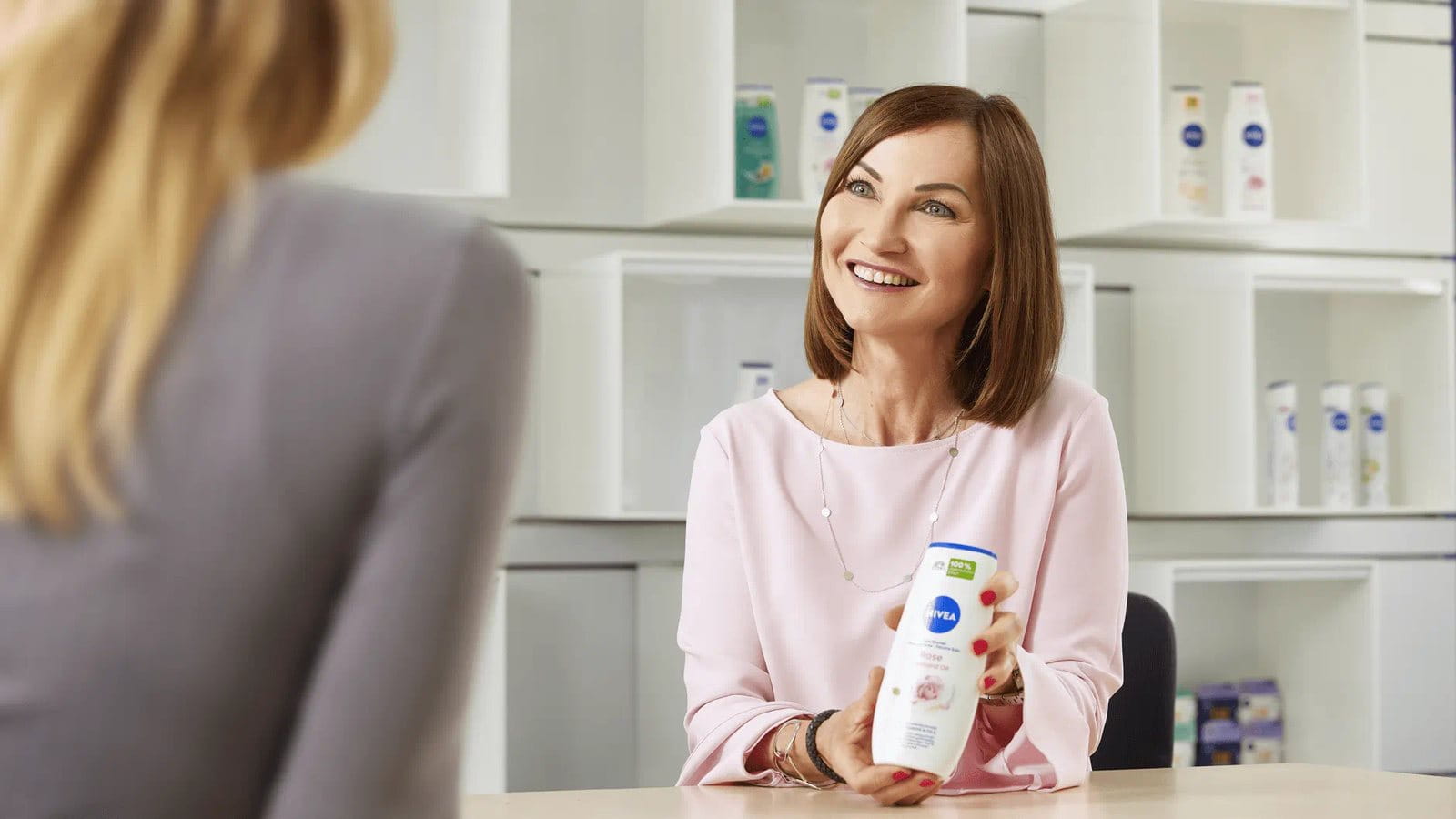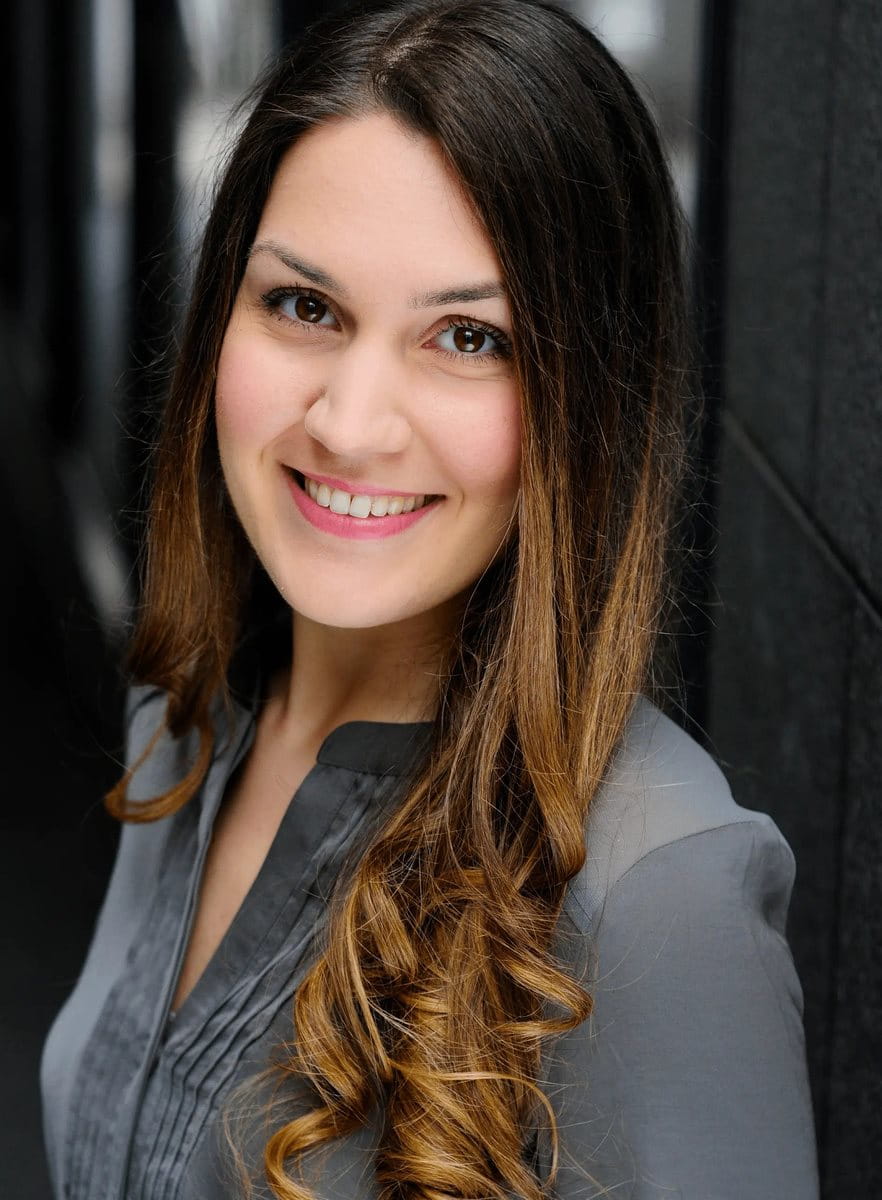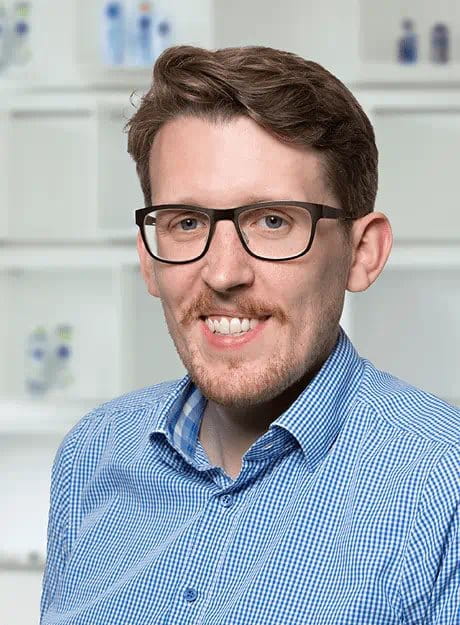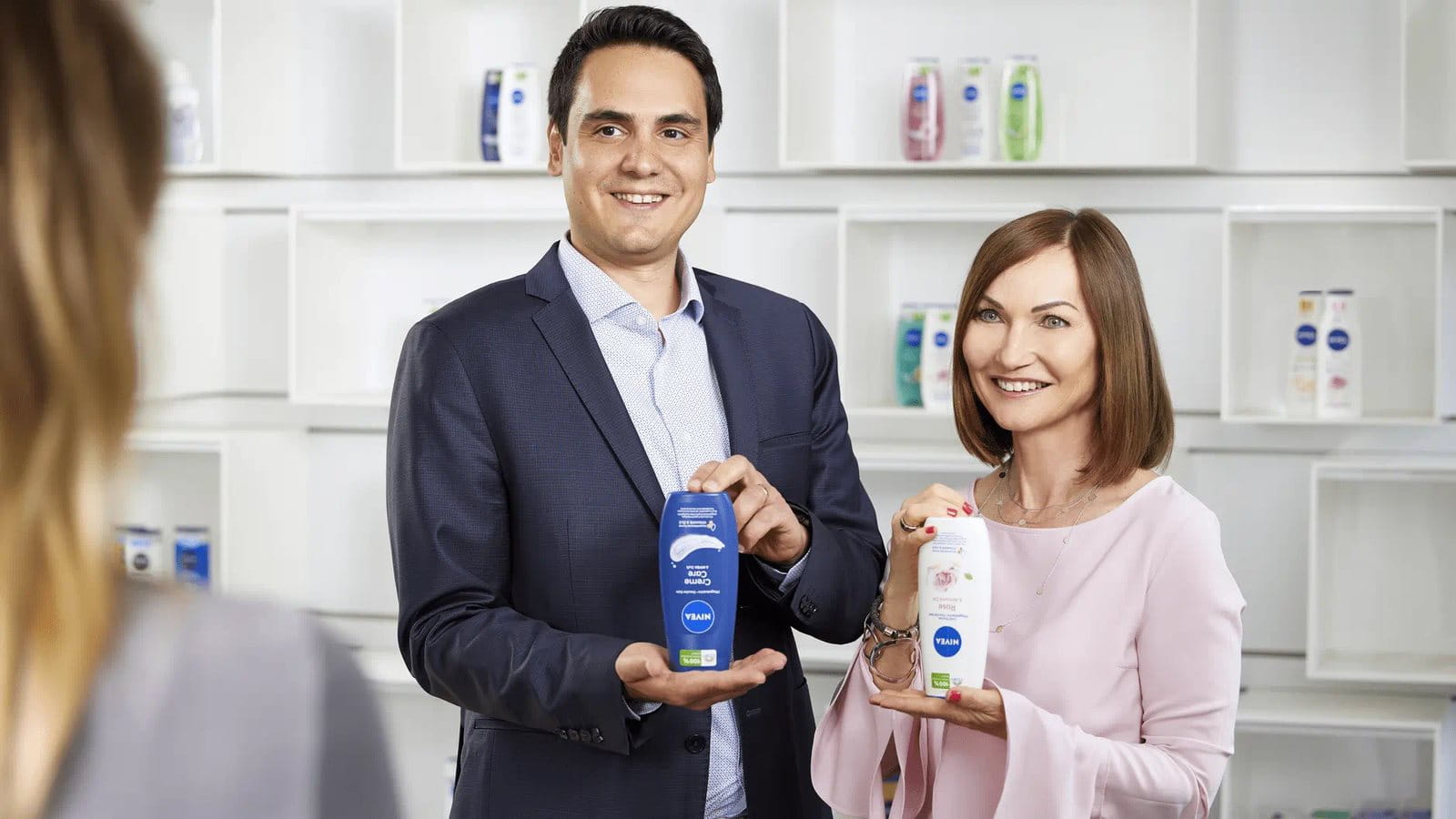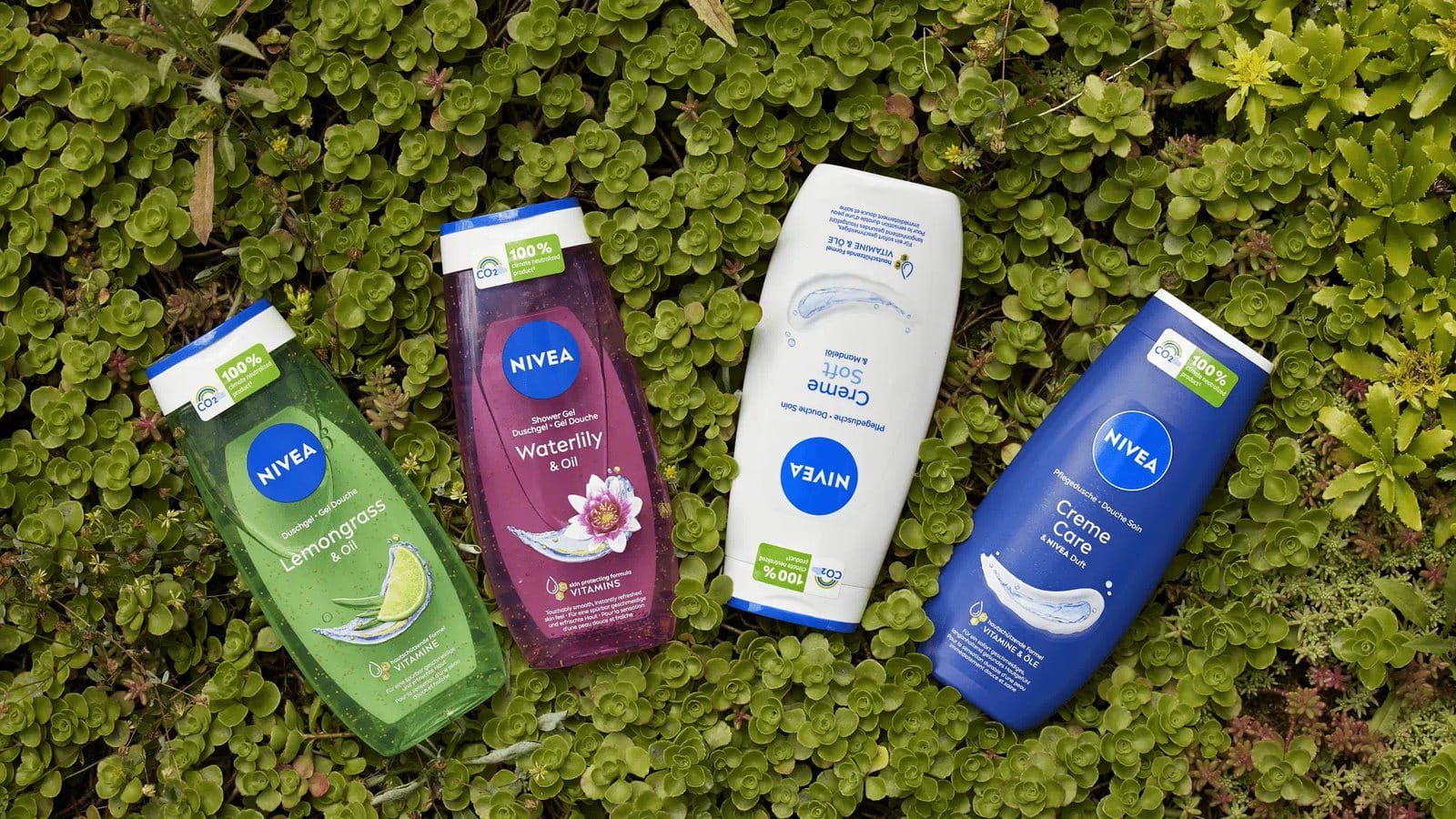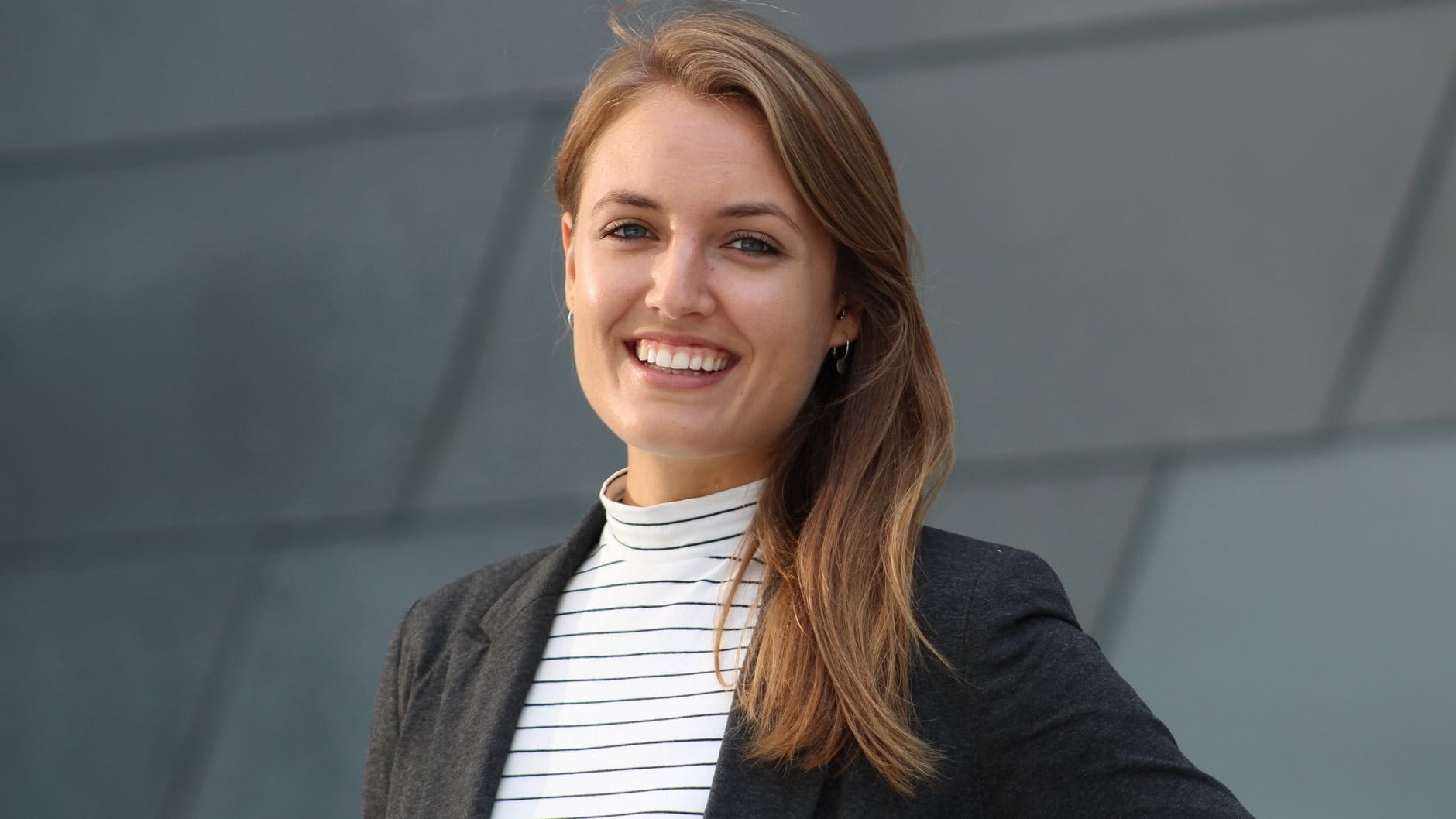The relaunch of our bestselling NIVEA female and universal shower gels marks an important step on the journey towards climate-friendlier products at Beiersdorf. In 2022, the range will be rolled out with a significant reduction in CO2 emissions at production sites and throughout the value chain, as well as the neutralization of the remaining CO2 emissions of the sustainably improved products.
In this interview, members of the core project team Sabine Schulz (Formula Development, Body Cleansing), Julia Rainer (Packaging Development, Body Cleansing), Orkun Kaymakci (Packaging Development, Plastics Technology) and Adrian Przybill (Packaging & Formula Science) were asked about the development of this range, how the products contribute towards our sustainability targets and what’s next for world of sustainable packaging.

